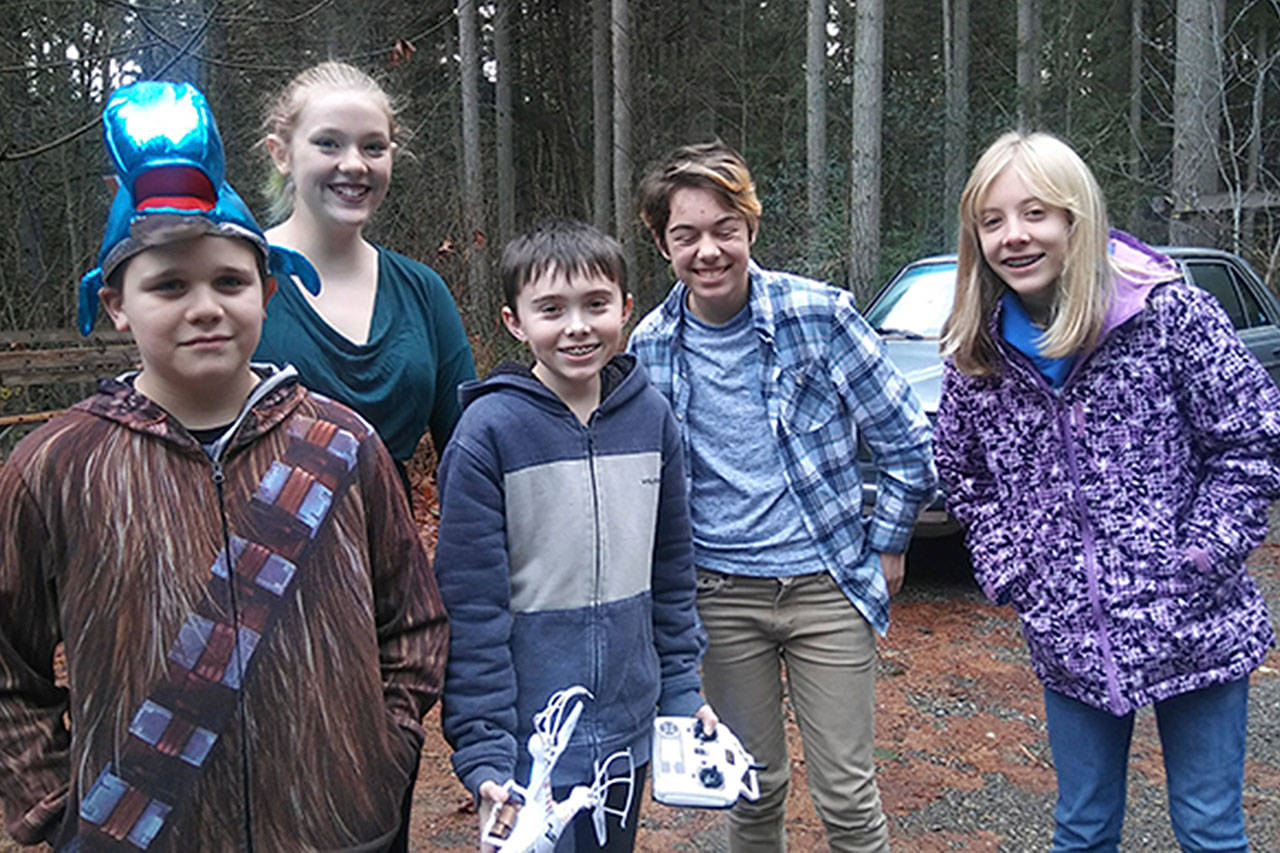The Vashon Robotics Club’s McMurray Middle School team is headed to Des Moines, Washington, on Saturday to compete in the semi-finals of the FIRST LEGO League 2017-18 competition.
The seven-member, self-named Sneaky Whales (Andean Nicolino, Iris Bordman, Evan Hancock, Everest M., Alyssa Hawkins, Lou MacLaughlin and Japhy Tsiatsenhoven) will give three group presentations and run their robot, “Bob,” through a field challenge at the annual event.
“Aside from building and programming a robot to perform certain pre-determined tasks,” Jessica Bolding, mother of Bordman and the team’s presentation and project coach, said, “the competition includes a humanitarian project based on the theme for the year, a core values presentation for the group and an engineering presentation.”
The theme for the competition this year is hydro dynamics.
According to Bolding, the kids were instructed to identify an existing solution relating to water health or safety and improve on it. The Sneaky Whales identified the WAPI, or water pasteurization indicator.
Camping enthusiasts might be familiar with the WAPI, typically a clear polycarbonate tube with colored wax inside that, when the tube is sitting in water, will melt when the water temperature reaches pasteurization level (149 degrees Farenheit). It is designed so that when the wax is completely melted in the tube, the water is fully pasteurized and safe to drink.
In their effort to take water safety testing and purification to the next level, the Sneaky Whales outfitted a drone with a special “arm” they created that includes a water-sampling implement that can determine whether or not the water is safe for drinking. For when it is unsafe, the group rigged a solar panel to act as an ultraviolet light filter for the water — UV light will pasteurize the water by destroying the pathogens that can cause illness. This has conservation significance as it eliminates the need to boil the water to make it safe: No boiling means fewer trees cut down for fire fuel.
Bolding also noted that as part of their projects, the teams had to interview experts. For the Sneaky Whales, this meant engineers and water scientists.
“The team has not made it to this level in the competition before,” Bolding said. “It was the humanitarian project that really propelled them this time; they were told it was very innovative.”
So innovative, in fact, that it caught the eye of one of the judges at a previous competition — a global health specialist currently working on water sustainability and surveying projects — who wants to use the arm from the team’s drone to test water quality in Guatemala this spring.
On Saturday in Des Moines, the team of fifth- through eighth-graders will give its three presentations of about 10 minutes each through the morning, and the afternoon will be devoted to Bob’s field trial of tasks to be performed.
FIRST (For Inspiration and Recognition of Science and Technology) Washington is a nonprofit devoted to engaging kids ages 6 through 18 in real-world science, technology and teamwork challenges using competitive robotics as a platform.
The organization is a branch of the FIRST global community, which includes 450,000 youth and 130,000 mentors and volunteers across 70 countries world-wide. At the high school level, top robotics teams are often scouted by college engineering programs and technology companies.
On Vashon, the robotics club — led by Bruce Johns — meets weekly on Saturdays, and is under the umbrella of the Vashon PTSA.



